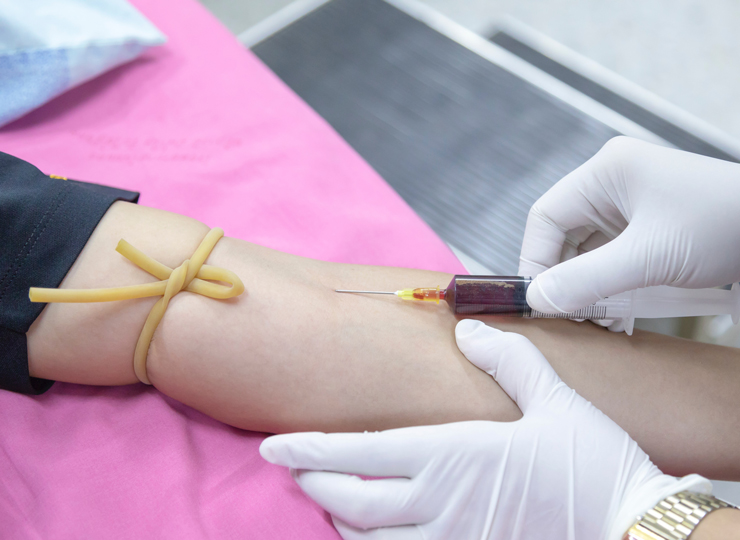
March 16, 2018
Researchers are moving closer to developing a blood test to help diagnose Alzheimer’s disease. The availability of a reliable blood test would make it simpler to detect Alzheimer’s than current methods that are mostly based on brain scans or more invasive tests such as spinal taps.
Such a test could also be used more broadly and in the earliest stages of Alzheimer’s disease, before damage to the brain becomes extensive. A simple and early diagnostic test could also greatly aid in the development of new drugs to treat or curb the progression of disease.
The new blood test, developed by scientists in Japan and Australia, measures a specific substance in the blood with 90 percent accuracy in patients in the early stages of Alzheimer’s disease.
Currently, a probable diagnosis of Alzheimer’s disease requires costly and cumbersome brain scans or spinal fluid tests that require invasive and often painful procedures such as lumbar puncture. An accurate blood test would be much simpler and quicker, less stressful for patients and less expensive to perform.
“This new test has the potential to eventually disrupt the expensive and invasive scanning and spinal fluid technologies,” said study leader Colin Masters of the Florey Institute of Neuroscience and Mental Health and the University of Melbourne in Australia. The findings were published in the journal Nature.
If further research confirms the accuracy of such a test, it could “be an invaluable tool in increasing the speed of screening potential patients for new drug trials,” Dr. Masters said. “Progress in developing new therapeutic strategies for Alzheimer’s disease has been disappointingly slow. None of the drugs currently on the market treat the underlying disease. New drugs are urgently required, and the only way to do that is to speed up the whole process,” including the early diagnosis step. Fisher Center Scientists are aggressively trying to develop a prophylactic drug which will halt the progression of Alzheimer’s disease.
Experts say that potential therapies to halt or curb Alzheimer’s may be most effective if given to patients as early as possible, before damage to the brain becomes extensive. The earlier we stop the disease process, the fewer brain cells that service critical functions will have been lost. A simple diagnostic test such as a blood test to detect early Alzheimer’s would also greatly help in better drug design by enabling doctors to recruit patients for drug trials more easily and more precisely.
The new blood test looks for fragments of proteins in the blood that indicate accumulating levels in the brain of beta-amyloid, a toxic protein that builds up in those with Alzheimer’s disease. Abnormal levels of the protein may begin to accumulate decades before memory loss and other symptoms of Alzheimer’s disease become evident.
For the study, the researchers looked at 121 men and women in Japan and 252 people in Australia. Their ages ranged from 60 to 90, with a mean age of 74. Some of the participants were mentally sharp, others had memory problems or Alzheimer’s disease.
The scientists compared blood test results with those obtained by expensive scans and spinal-fluid analysis. The blood test was 90 percent accurate in detecting beta-amyloid buildup in the brain.
“From a tiny blood sample, our method can measure several amyloid-related proteins, even though their concentration is extremely low,” said Dr. Koichi Tanaka of the Shimadzu Corporation, which is developing the test. “We found that the ratio of these proteins was an accurate surrogate for brain amyloid burden.”
But not everyone with high levels of beta-amyloid in the brain goes on to develop Alzheimer’s disease. The authors say that larger and more long-term studies are needed to confirm how accurate the blood test is at identifying those with early Alzheimer’s.
Other blood tests for Alzheimer’s are in development, but it will likely be years before such a test becomes readily available at the doctor’s office.
By www.ALZinfo.org, The Alzheimer’s Information Site. Reviewed by Marc Flajolet, Ph.D., Fisher Center for Alzheimer’s Research Foundation at The Rockefeller University.
Source: Nakamura A et al. High performance plasma amyloid-Beta biomarkers for Alzheimer’s disease. Nature 2018 Feb 8; 554:249











